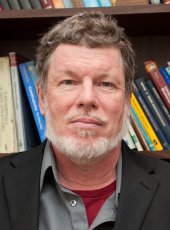Iosif Pinelis published a paper, “Quantifying Minimal Noncollinearity among Random Points,” in Theory Probab. Appl., 62(4), 604–616, https://doi.org/10.1137/S0040585X97T988836. A preprint version of the paper can be found online.
 Iosif Pinelis published the paper, “An alternative to the Euler–Maclaurin summation formula: approximating sums by integrals only,” in Numerische Mathematik, Springer Nature Online First. The paper can be read on Springer SharedIt.
Iosif Pinelis published the paper, “An alternative to the Euler–Maclaurin summation formula: approximating sums by integrals only,” in Numerische Mathematik, Springer Nature Online First. The paper can be read on Springer SharedIt.
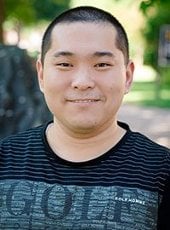 Yang Yang is the principal investigator on a project that has received a $236,978 research and development grant from the National Science Foundation (NSF). The project is titled “High-Order Numerical Methods for Convection-Diffusion Equations with Unbounded Singularities.”
Yang Yang is the principal investigator on a project that has received a $236,978 research and development grant from the National Science Foundation (NSF). The project is titled “High-Order Numerical Methods for Convection-Diffusion Equations with Unbounded Singularities.”
This is a three-year project.
A book co-authored by Don Kreher, titled “Graphs, Algorithms, and Optimization,” Second Edition, has been selected for review by Choice, a journal for librarians. Only three books from the publisher’s entire mathematics and statistics portfolio have been chosen for review this year.
In January, Choice will select their Book of the Year from the books reviewed. The review of Kreher’s book, co-authored by William Kocay of the University of Manitoba, places it in nomination.
Graduate students Samer Alokaily, Sophie Zhu, and Nadun Dissanayake are recipients of the Outstanding Graduate Student Teaching Award, as announced by the department.



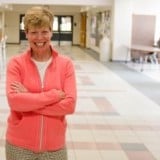 Beth Reed, a senior lecturer in the Mathematical Sciences Department of Michigan Technological University, is the recipient of the 2017 Distinguished Teaching Award in the Assistant Professor/Lecturer/Professor of Practice category.
Beth Reed, a senior lecturer in the Mathematical Sciences Department of Michigan Technological University, is the recipient of the 2017 Distinguished Teaching Award in the Assistant Professor/Lecturer/Professor of Practice category.
Reed, who is also assistant to the department chair, has been teaching mathematical sciences at Tech since 1985 and has been recognized at the departmental level multiple times for both her teaching and her service. This year she was named to the Deans’ Teaching Showcase.
Reed began her academic career in forestry, earning a master’s in forest biometrics from Virginia Polytechnic Institute and State University in 1982. She joined Michigan Tech’s School of Forest Resources and Environmental Science in January of 1983 as a research associate working on four different research projects before moving to the Department of Mathematical Sciences in 1985.
Reed says the secret to her success lies, in part, in her effort to “personalize” her classroom. Though many of her classes have almost 60 students, she learns every student’s name.
“I expect and actually get interaction from almost everyone. It really helps that I can call on each person by name. and if they don’t know the answer, I can turn to their neighbor and ask them to help out.”
Read the full story.
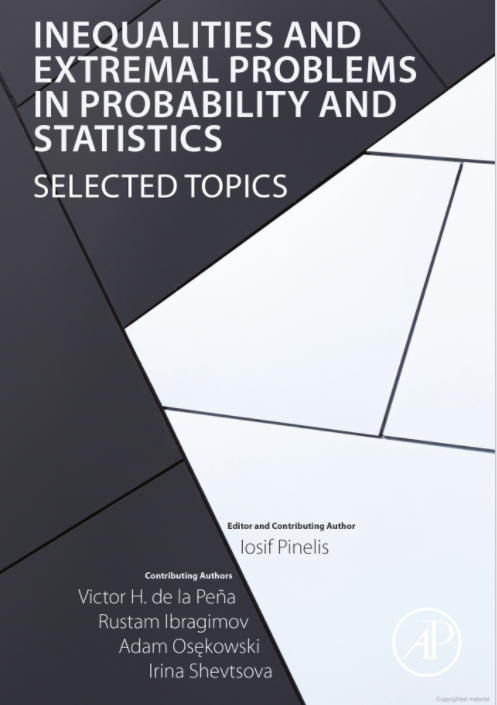 Iosif Pinelis contributed two chapters, “On the nonuniform Berry—Esseen bound” and “On the Berry—Esseen bound for the Student statistic,” to the book “Inequalities and Extremal Problems in Probability and Statistics: Selected Topics,” just published by Elsevier’s imprint Academic Press. Pinelis is also the editor of the book.
Iosif Pinelis contributed two chapters, “On the nonuniform Berry—Esseen bound” and “On the Berry—Esseen bound for the Student statistic,” to the book “Inequalities and Extremal Problems in Probability and Statistics: Selected Topics,” just published by Elsevier’s imprint Academic Press. Pinelis is also the editor of the book.
The other contributing authors are V. de la Peña (Columbia University), R. Ibragimov (Imperial College London), A. Osȩkowski (University of Warsaw, Poland) and I. Shevtsova (Moscow University, Russia).
The Google preview of the book is available online through Google Books and Elsevier.
Also, Pinelis published the paper, “(Quasi)additivity Properties of the Legendre—Fenchel Transform and its Inverse, with Applications in Probability“, in the Journal of Convex Analysis 24 (2017), No. 3, online first.
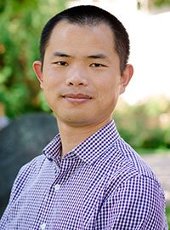 Min Wang is the principal investigator on a project that has received a $10,000 grant from the National Science Foundation. The project is titled, “Bayesian Inference in Statistics and Statistical Genetics.” This is a one-year project.
Min Wang is the principal investigator on a project that has received a $10,000 grant from the National Science Foundation. The project is titled, “Bayesian Inference in Statistics and Statistical Genetics.” This is a one-year project.
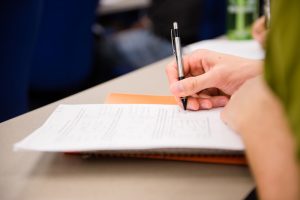 Michigan Tech’s Department of Mathematical Sciences is hosting the UP Math Championships from 11 a.m. to 4 p.m. Saturday (April 15) in Fisher Hall. Students in grades 3 -12 from throughout the UP have been invited to participate.
Michigan Tech’s Department of Mathematical Sciences is hosting the UP Math Championships from 11 a.m. to 4 p.m. Saturday (April 15) in Fisher Hall. Students in grades 3 -12 from throughout the UP have been invited to participate.
Students will compete as individuals and in teams of four. High school students will be competing for 10 scholarships to Michigan Tech. The competition includes an individual test, a team test and a “GUTS” test in which teams race to complete as many problems as they can.
Prizes, in addition to scholarships, include laser tags, Texas Instruments calculators and 3-D printed trophies.
Sponsors, in addition to Tech’s Department of Mathematical Sciences, include OHM Advisors, GS Engineering, Respawn Laser Tag, Texas Instruments and Art of Problem Solving.
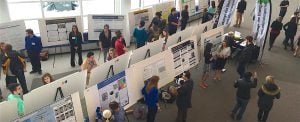 The Undergraduate Research Symposium highlights the amazing cutting-edge research being conducted on Michigan Tech’s campus by some of our best and brightest undergraduate students.
The Undergraduate Research Symposium highlights the amazing cutting-edge research being conducted on Michigan Tech’s campus by some of our best and brightest undergraduate students.
The students showcasing their work today have spent a significant portion of the past year working alongside Michigan Tech faculty and graduate students to explore, discover and create new knowledge. They’ve spent long hours in the lab or out in the field designing experiments, gathering data, creating new models and testing hypotheses. They’ve applied their classroom knowledge in new and sometimes unexpected ways, and developed new skills that will propel them forward in their careers.
Anthony Marcich – Applied and Computational Mathematics
Title: Preliminary Work for Autochrome Photograph Reconstruction: Scanning and Processing Design
Advisor: Dr. Cecile Piret
Overview: Marcich goal is to use Radial Basis Functions methods (RBF) to construct smooth and accurate images from scans of these photographs. Their investigation of RBF requires processing scanned photos into nodes. They then described the initial scanning and processing work necessary to obtain these nodes.
E. Yasmine Walton-Durst – Mathematics
Title: Rayleigh–Bénard Convection in Michigan Tech’s Cloud Chamber – A Statistical Analysis of High Frequency Temperature Fluctuations
Advisor: Dr. Will Cantrell
Overview: Walton-Durst used time series analysis and other statistical methods to identify trends in temperature fluctuations from a second to several minutes. We hypothesize that data from the temperature sensors can provide a signature of the characteristic fluid movement within the chamber.
Madison Heeringa – Acutarial Science Mathematics
Title: Finding Structure in Data
Advisor: Dr. Benjamin Ong
Overview: Heeringa’s goal is to learn about and understand PCA and multi-scale PCA. Which will eventually be used to classify land and canopy cover in satellite images.
